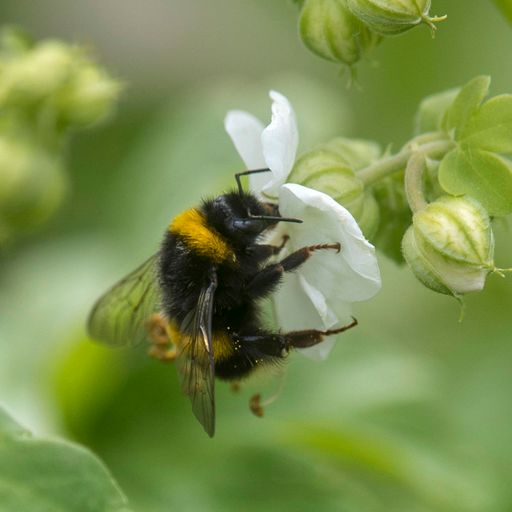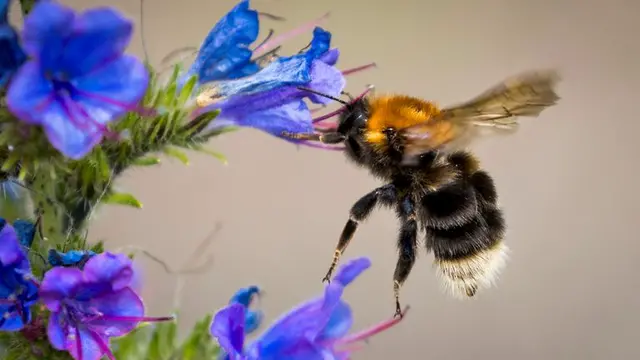Certain pesticides cause permanent brain damage in baby bumblebees and may threaten the future success of colonies, researchers from Imperial College London have found.
The study scanned the brains of bees exposed to imidacloprid, one of the neonicotinoid group of pesticides.
They found the key region of the brain that facilitates learning showed reduced growth and residues of the insecticide in flowers and plants caused permanent brain damage.

Endangered species in the UK
The plight of the world's wildlife has been laid bare in a United Nations report
The research, published in the journal Proceedings of the Royal Society B, involved exposing bumblebees to small amounts of imidacloprid during their development as larvae or very young adults.
The learning ability of the larvae was tested after three days and after 12 days once they emerged as adults.
Bees that were fed imidacloprid when they were developing as larvae showed "significantly impaired learning ability" compared to those that were not, the researchers said.
The team then scanned the brains of nearly 100 bees from the different colonies.
They found that baby bees exposed to imidacloprid during larval development had a smaller volume of the brain region associated with learning.
Dr Richard Gill, from the department of life sciences at Imperial and the lead researcher on the study, said: "Bee colonies act as superorganisms, so when any toxins enter the colony, these have the potential to cause problems with the development of the baby bees within it.
"Worryingly in this case, when young bees are fed on pesticide-contaminated food, this caused parts of the brain to grow less, leading to older adult bees possessing smaller and functionally impaired brains; an effect that appeared to be permanent and irreversible.
"These findings reveal how colonies can be impacted by pesticides weeks after exposure, as their young grow into adults that may not be able to forage for food properly."
Imidacloprid is a systemic insecticide that acts on the central nervous system of insects. The chemical works by interfering with the transmission of stimuli in the insect nervous system and was created to mimic the effects of nicotine, which is naturally found in many plants and is toxic to insects.
It is one of three neonicotinoids banned from all field crops in the EU because of its impact on pollinators, but is used elsewhere around the world.
Lead author of the new study Dr Dylan Smith, from the Imperial College said: "There has been growing evidence that pesticides can build up inside bee colonies.
"Our study reveals the risks to individuals being reared in such an environment, and that a colony's future workforce can be affected weeks after they are first exposed."
 简体中文
简体中文

